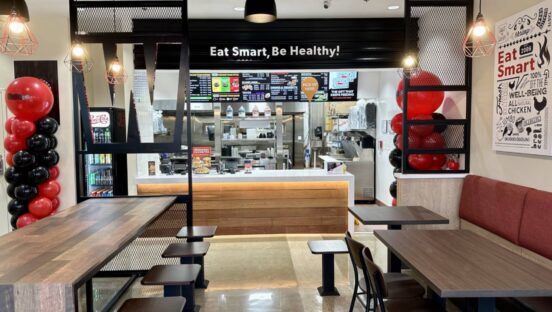Eager to launch his new restaurant concept Komotodo Sushi Burrito and having already experienced one failed Kickstarter campaign, Alonzo Martinez designed a new strategy and went at it again. The second campaign, supported by a press release and Martinez’s grassroots efforts to spread the word, reached its mark; more than 100 backers funded the Denver-based restaurant through Kickstarter for nearly $3,000, giving Martinez some much-needed capital to get the business going.
Martinez’s experience proved to be much more interactive than most brands get with a Small Business Administration (SBA) or other conventional bank loan. That’s because, unlike those traditional funding avenues, Kickstarter and similar platforms require brands to take a different, often more active role in raising support.
“It isn’t a physical product you can ship anywhere in the world,” Martinez says. “With a restaurant, you’re targeting more local people.”
El Jalapeño Mexican Grill opened in Columbus, Ohio, in 2012. Hoping to gain additional traction and catch new business, managing partner Delwar Mottaleb applied for an SBA loan after launching his concept but was unable to secure funding through a bank. An Internet search turned up some additional options, none of which fit Mottaleb’s needs. He says all the traditional routes were asking for too much: years of bank statements, sales receipts, and myriad other documentation.
A bit more research brought Mottaleb to Credibly, a nonbank lender with a loan process well suited to young restaurant brands. “They asked for statements and also some of my personal information, and that was it,” Mottaleb says. “Within 48 hours they approved my loan.”
It can be difficult for small business owners to carve out the time to pull together reams of records—something Mottaleb was happy to leave behind after connecting with Credibly. His subsequent loan for $51,000 enabled him to purchase equipment to expand his product offerings.
Increased options in the loan world haven’t come about by accident. Today’s entrepreneurs are savvy and innovative, and more are seeking out nonbank funding vehicles.
“I’ve seen a trend of a higher level of awareness creating more demand,” says Daniel Demeo, CEO of New York’s CAN Capital, a funding provider active in the restaurant industry. Those brand owners are also interested in the customer service provided by CAN Capital and other alternative financial providers—something greatly appreciated by time-starved small business owners. “They love the experience because, one, it’s much faster. The second thing they like is the oftentimes much higher approval, or ‘yes’ rate.”
This combination of expertise and expediency translates into low-friction, fast access to funding in a market that’s competitive and fast moving.
Mottaleb sees nonbank financing as an option that could be very popular as more small brands become aware of it, especially considering the difficulties he encountered trying to secure funding.
The need for historical data is exactly what makes traditional loans difficult for startups like Komotodo Sushi Burrito. Martinez looked at other funding options but says business loans are almost impossible for new concepts; operators who have operated a successful restaurant for two years or more are much more likely to receive funding.
While processes set out by nonbank providers do not parallel the traditional loan request and approval practices, nonbank providers will typically require at least some of the same documentation and assurances of an ability to repay any debts.
“There needs to be proof and verification of a real business,” Demeo says. That means an employer identification number (EIN), business license number, or similar documentation to confirm the company has been in business for some period of time, often a year or more. “We’re making our decisions on business performance predominantly; it’s less about the personal credit history of the merchant.”
Steady cash flow may also need to be verified through bank statements or other records. Even so, the process is light when compared with the hefty applications needed for SBA or other bank loans.
Another obstacle is that conventional financing may be difficult to find unless the applicant is connected with a known franchisor or other large, established brand, Mottaleb says. Being an independent, local concept made it difficult for El Jalapeño Mexican Grill to receive bank support. Even when a potential provider was found, interest rates and other terms weren’t always favorable. Credibly offered Mottaleb several plans that encompassed a range of terms, rates, and loan amounts.
While Kickstarter was a great fit for Komotodo Sushi Burrito, Martinez isn’t sure it would work as well for a franchise operation. He believes that franchisees working with well-known concepts may not find the same benefits in a Kickstarter-style campaign. A brand seeking large amounts of capital could also find it difficult to achieve through the crowd-funding route.
“I think it’s useful for small mom-and-pop shops, or a small, unique restaurant concept such as mine,” he says. The buzz generated locally through Kickstarter made for a successful grand opening for Komotodo with lines out the door and an hour-long wait to order. It also piqued operator interest. “We already have people talking about us, about replicating our model.”





